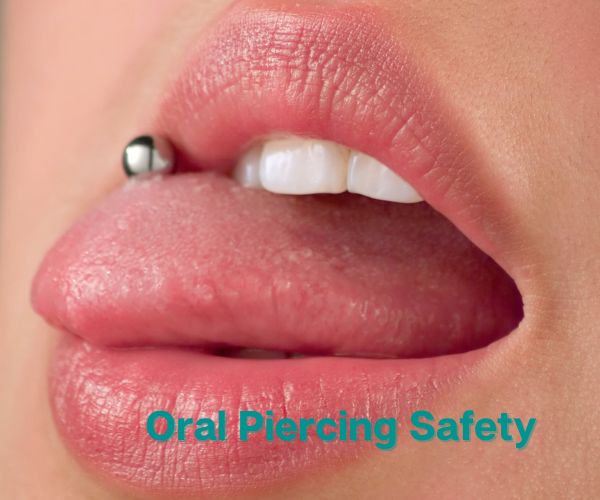Oral piercings are becoming increasingly popular, but they come with a few risks. When done improperly, they can cause significant damage to the mouth, including infection and even tooth loss. That’s why it’s important for dentistry patients (and those considering getting pierced) to be aware of the potential pitfalls and take proper precautions before getting their tongue or lip pierced.
Risks of Oral Piercing
Oral piercings carry certain risks that could have serious repercussions. The most common complications include infection, gum recession, nerve damage, and chipped or cracked teeth. Infections are caused by bacteria entering the mouth through the piercing site and can lead to swelling, bad breath, and even abscesses if left untreated.
Gum recession is caused when oral jewelry rubs against the gums; this can weaken them over time and leave you more susceptible to gum disease. Nerve damage is another possibility—the jewelry can press into nearby nerves and cause numbness or tingling.
Finally, chipped or cracked teeth can occur if the oral jewelry gets caught in between your teeth while eating or speaking; these injuries may require costly dental work to repair them.
Oral Piercing Precautions
If you’re considering getting your tongue or lip pierced, there are some precautions you should take first in order to reduce your risk of complications:
- Visit an experienced piercer who uses sterile techniques – Make sure that the person doing your piercing has plenty of experience with oral piercings and always uses clean needles and sterile techniques. This will reduce your risk of infection substantially.
- See a dentist – Make sure to tell your dentist about your plans for an oral piercing so they can check for any underlying oral health problems that may put you at greater risk for complications after getting pierced. They may also be able to recommend a reputable piercer in your area if needed.
- Avoid stress on the piercing – Refrain from playing with the jewelry in your mouth as much as possible; this can put unnecessary stress on the piercing site which could lead to infections or other problems down the road. If you experience any pain, discomfort, bleeding around the area, it’s best to seek medical attention immediately as this could be a sign of infection setting in.
Oral piercings have become quite popular among young people recently, but they come with some inherent risks that should not be taken lightly—infection is one of the most common problems associated with them.
To avoid any problems down the road it’s important for dentistry patients (or those considering getting their tongue or lips pierced) to take proper precautions before going through with it such as visiting an experienced piercer who uses clean needles and sterile techniques and seeing a dentist beforehand who can check for any underlying oral health issues that may put you at greater risk for complications after getting pierced.
Taking these precautions will help ensure that everything goes smoothly during–and after–your piercing experience!

